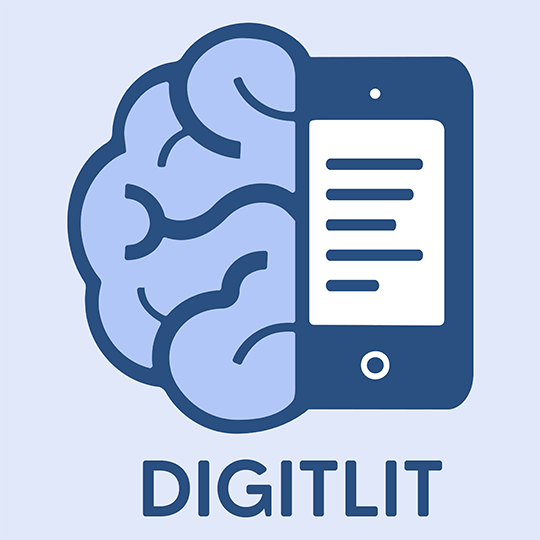DIGITLIT
In today’s highly digitalized world, where endless streams of information are just a click away, literacy skills have become indispensable. Particularly, readers are constantly faced with demands to integrate and evaluate information coming from multiple sources. These skills are known as multiple-document comprehension. Yet, many young people and adults struggle with insufficient proficiency, as reflected in large-scale international assessments conducted in recent years, such as PISA and PIAAC. This issue may hinder their autonomy and critical thinking, leaving them less equipped to make informed decisions and to engage as responsible citizens in modern society.
Therefore, the main goal of the DIGITLIT project is to examine in depth specific challenges of digital reading faced by young students and to find ways to enhance their comprehension skills, enabling them to cope with the demands of today’s reading contexts.
The team responsible for this project, Psicotext, has focused on understanding comprehension and learning through texts for the last 20 years, and has received continuous funding from national and local agencies. Over this time, the team has developed a diverse range of tools to study comprehension processes across all age groups, particularly in task-oriented environments where individuals engage with single or multiple documents at different levels of processing—from surface to deep—to answer questions, write essays, or create summaries. This project aims to build on previous research to address existing knowledge gaps, advance the field, and foster stronger connections between research and practice.
Objectives:
The three specific objectives are:
Objective 1: To measure university students’ functional literacy skills with both single and multiple documents, explore how these skills are related, and compare students in the early and later stages of their undergraduate studies to examine potential development over time.
Objective 2: To test whether assessing students’ understanding of task requirements can be used as a tool to improve their self-regulation when answering questions in computer-based reading environments.
Objective 3: To investigate how automatically delivered, computer-based feedback is processed in a digital learning environment, and how it can enhance students’ reading skills—such as searching for and integrating information—as well as their overall learning outcomes.
Digital reading; Task-oriented reading; University students; Learning from text; Multiple documents; Feedback
- Cerdan Otero, Raquel
- PDI-Catedratic/a d'Universitat
- Coordinador/a de Programa de Doctorat
- Mañez Saez, Ignacio
- PDI-Prof. Permanent Laboral Ppl
- Coordinador/a Curs
- Cerdan Otero, Raquel
- PDI-Catedratic/a d'Universitat
- Coordinador/a de Programa de Doctorat
- Mañez Saez, Ignacio
- PDI-Prof. Permanent Laboral Ppl
- Coordinador/a Curs
- Martinez Gimenez, Tomas
- PDI-Titular d'Universitat
- Serrano Mendizabal, Maria Angeles
- PDI-Prof. Permanent Laboral Ppl
- Coordinador/a de Mobilitat
- Pilar Sellés (Catholic University of Valencia)
- Alba Rubio (Florida University)
- Ana Cristina Llorens (Florida University)
- Gimenez Salvador, Mariola
- PI-Invest Formacio Predoc Fpu
- María García Serrano (University of Salamanca)
- Cornelia Schoor (Bamberg University, Germany)
- Carolin Hahnel (Ruhr-Bochum University, Germany)
- Jean-François Rouet (University of Poitiers, France)
raquel.cerdan@uv.es
ignacio.manez@uv.es
This website is part of the project PID2024-161750OB-I00, funded by the Spanish Ministry of Science, Innovation and Universities, the Spanish State Research Agency and the European Regional Development Fund.
- AGE - Knowledge Generation Projects











